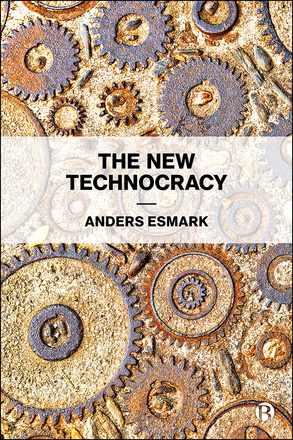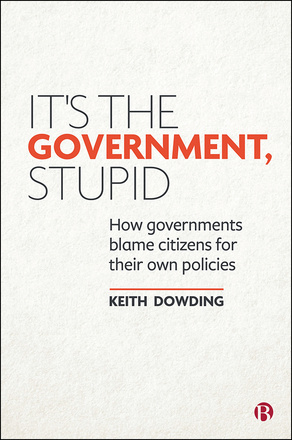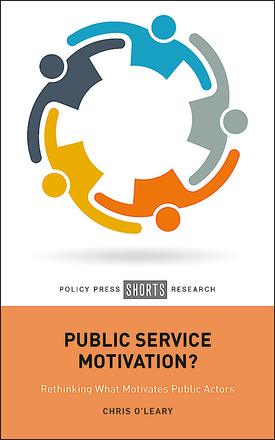Public administration
The New Technocracy
Setting a new benchmark for studies of technocracy, this book shows that a solution to the challenge of populism will depend as much on a technocratic retreat as democratic innovation.
It’s the Government, Stupid
How Governments Blame Citizens for Their Own Policies
Governments conveniently blame social problems on their citizens, placing too much emphasis on personal responsibility. This book shows that ‘nudging’ citizens to better behaviour simply isn’t good enough and explains why we should hold our politicians responsible for social problems.
The European Challenge
Innovation, Policy Learning and Social Cohesion in the New Knowledge Economy
Economic and social change is accelerating under the twin impact of globalisation and the new information technologies. This book addresses questions of change with particular reference to the European Union, which has made the development of a socially cohesive, knowledge-based economy its central task for the present decade.
The Future of Development
A Radical Manifesto
This book explains the origins of development and underdevelopment and offers a new vision for development, demystifying the statistics that international organizations use to measure development and introducing the alternative concept of buen vivir: the state of living well.
Local Knowledge Matters
Power, Context and Policy Making in Indonesia
This book explores the critical role that local knowledge plays in public policy processes as well as its role in the co-production of policy relevant knowledge with the scientific and professional communities.
Richard Titmuss
A Commitment to Welfare
This is the first full-length biography of Richard Titmuss, a pioneer of social policy research and an influential figure in Britain’s post-war welfare debates.
Deliberative Mini-Publics
Core Design Features
Bringing together ten leading researchers in the field of deliberative democracy, this important book examines the features of a Deliberative Mini-Public (DMP) and considers the contributions that DMPs can make not only to the policy process, but also to the broader agenda of revitalising democracy in contemporary times.
Public Service Motivation?
Rethinking What Motivates Public Actors
Christopher O’Leary provides a fresh perspective on prosocial working choices in this first substantive critique of Public Service Motivation. The book reviews concepts of PSM and research to date and explores the rationales and aims of public and third sector workers before proposing alternative theories for people’s motivations to serve.
The Swedish Experiment
The COVID-19 Response and its Controversies
This short book explores Sweden’s response to the global pandemic and the wave of controversies it triggered. It helps to make sense of the response by defining ‘a Swedish model’ that incorporates the country’s value system and offers a case study for understanding the ways in which different national approaches to the pandemic have been compared.
Democratizing Science
The Political Roots of the Public Engagement Agenda
Available open access under CC-BY-NC-ND licence. This book examines remedies for improving public trust and the legitimacy of science. It reviews policy approaches adopted by governments and offers an original analysis of the political roots of the impact and public engagement agenda, shedding light on the wider connections to democracy.
The Passionate Economist
How Brian Abel-Smith Shaped Global Health and Social Welfare
This is the first biography of Abel-Smith. It takes a historical perspective to analyse the development of health and social welfare systems since the 1950s, exposing the critical impact of long-running debates on poverty and state responsibility, especially in Britain.
Understanding and Improving Public Management Reforms
Why do top-down reforms to public services so often over-promise and under-deliver? Using five concepts from psychology, economics and organisational sociology and diverse examples of successes and failures, Thomas Elston addresses this pressing question of good governance.


















